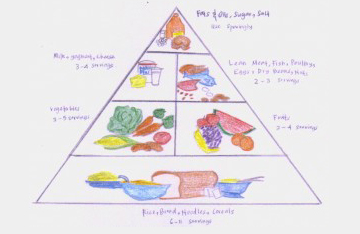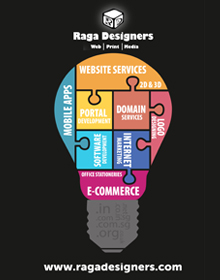[w8_row margin_bottom=”30px”]
[w8_column type=”col-md-6″][/w8_column]
[w8_column type=”col-md-6″]Steps to Heart Health 1 »[/w8_column]
[/w8_row]
Good Nutrition During Pregnancy – July 1st, 2005
Poliklinik Kathi Dr. Kathiresan Venkatachalam MBBS (Madras) DRM (Malaya) Family Phycisian Johor Bahru
INTRODUCTION
The food that you eat during pregnancy supplies the baby’s needs as well as yours. Therefore good nutrition is essential for the healthier development of the growing baby and the maintenance of your own health. Eating well does not mean ‘the more you eat is the better. The quality of the food you choose is more important than the quantity. Your additional daily energy requirement is only about 10-15% of your normal energy intake. This can be easily met by drinking 2 cups of milk. During your pregnancy, you need to pay extra attention to the intake of the following nutrients.
PROTIEN
Protein is essential for building tissues. Growth of the baby, Placenta, uterus, breast tissue, blood supply depends on an adequate supply of protein. Excellent sources of protein are milk, meet, eggs, fish and legumes. Mothers eating a varied diet or lacto-ovo-vegetarian (vegetarian diet that includes milk and eggs) diet usually have no problem meeting the protein requirement. Amino acids are building blocks of protein. Essential amino acids are those that our body cannot make and we need to get these from our diet.
COMPLEMENTING PROTIENS
Cereals and Legumes
Bread and Peanut butter, Chappathi or tosai and dhall, corn soup and rice, tempeh and rice.
Cereals and Seeds
Glutinous rice dumplings filled with black sesame paste (in soya bean milk), rice sprinkled with sesame seeds, wheat Flake breakfast cereal or oats with sunflower seeds.
Legumes and seeds (except sunflower seeds), bean salad and sesame seeds.
It is good to check with your doctor or dietician regarding the adequacy of your diet if you are a vegetarian and nutrients such as calcium, iron and vitamin B12 are potentially low.
IRON
Iron is necessary for the manufacture of blood. It is a major part of hemoglobin they carries oxygen around the body. Your blood supply increases during pregnancy creating the demand for iron. Your body needs iron for normal development too. If your diet is lacking in iron, you could become anaemic. Liver, kidney, poultry and fish are the best sources of iron. Liver is also high in vitamin A, which if taken in excess may harm baby. So, do not eat liver more than once a week and always in small quantities. Green leafy vegetables, whole grain cereals, nuts and beans contain moderate amounts. The iron in these foods is less absorbable. Eating a vitamin C rich food such as a slice of papaya or a glass of juice will increase the absorption of iron from vegetable sources.
CALCIUM
Both mother and the baby need calcium for strong bones and teeth, normal blood clotting and functioning of nerves and muscles. Milk and the other diary foods are the best dietary sources of calcium because:
Milk is rich in calcium.
The high levels of the milk carbohydrate i.e lactose and the presence of vitamins and calcium for absorption. Choose low fat dairy products whenever possible. If the increase requirement of calcium is not met by your daily intake, calcium will be drawn from your bones to meet your babys’ requirement. After your pregnancy, if your diet continues to be low in calcium, you will be more prone to osteoporoses (brittle bones) later in life. Fish with edible bones, some soybean products(e.g. Tofu) and green leafy Vegetable are also good sources of calcium.
FOLIC ACID
Folic acid, a vitamin B, is needed for the formation of new cells such as red blood cells. Deficiency may cause you to be anemic and your baby will be at higher risk of spina bifida (Neural Tube Defect). Folic acid is found in liver, kidney, dark green leafy vegetables, nuts, whole grain cereals, oranges and yeast extract.
Essential Fatty Acids
Fatty acids are building blocks for fat. Essential fatty acids are fatty acids that our body cannot manufacture. Thus must be obtained from food. These are linoleic Acid (LA) and alpha-lionelenic acid (ALA). LA and ALA are particularly important during pregnancy because of the constant demand of new cell formation.
LA and ALA is further processed in the body to arachidonic acid (AA) and decasahexanoic acid (DHA) respectively. AA and DHA are vital for proper growth and brain development of your baby. Studies have shown that pregnant mums who eat plenty of “oily fishes” such as salmon, tuna, sardines, mackerel and cod have higher amounts of DHA passed on to their babies.
Most of us eat a diet that is high in LA and usually is limiting. This is because ALA is less widely found in food. Therefore, use cooking oil such as soyabean and canola which are good sources of ALA and eat plenty of oily fishes to get DHA in your diet.
You should avoid excessive weight gain. Excess weight can be hard to ose after your baby is born and can lead to long term overweight.
You should not eat double of everything.
Eat less of the following food:
Fried food, fatty snacks (e.g) potato crisp, chocolates, rich cakes and pastries.
Sugary foods and drinks.
Tips for healthy eating during pregnancy:
Choose foods from the five food groups in adequate amounts to ensure a balanced diet.
Have 3 regular meals and 2-3 light snacks a day.
Include generous helpings of fruits and vegetables, whole grain, cereals and beans to increase your fiber intake. Drink plenty of water and fluids such as low fat milk and fresh fruit juice.
Eat “oily Fishes” about 2-3 times a week.
Use canola or soybean oil in your cooking.
Always eat fresh, wholesome food, processed food usually have a high Sodium content.
Reduce caffeine intake by cutting down on coffee, tea and cola. Restrict tea of coffee to 1-2 cups daily.
Avoid alcohol especially in the first trimester.







No Comment